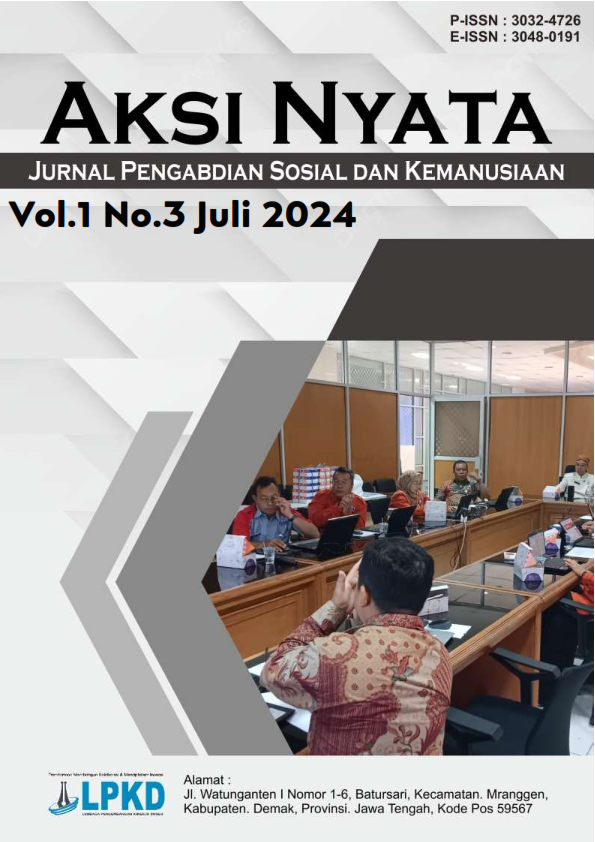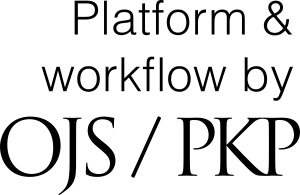Pemanfaatan Kulit Singkong Sebagai Pakan Alternatif Ternak Kambing di Desa Lolotuara Kecamatan Lakor Kabupaten Maluku Barat Daya
DOI:
https://doi.org/10.62383/aksinyata.v1i3.342Keywords:
Cassava peel waste, goat livestock, Ministry of AgricultureAbstract
Lakor Island is one of the islands located in Southwest Maluku Regency (MBD). Lakor Island also has local livestock plasma nurfah that has been recognized by the Ministry of Agriculture, the local livestock plasma nurfah is Lakor goats. Lakor goats are one of the local goat groups whose base is on Lakor Island, Southwest Maluku Regency, Maluku Province, and have been determined through the Decree of the Minister of Agriculture Number 2912 / Kpts / OT.140 / 6/2011 dated June 17, 2011. Therefore, the livestock must be maintained and its population preserved so that it does not become extinct and run out, but the problem often faced by farmers on Lakor Island is the lack of feed in the dry season, to answer this problem in this community service will try to utilize agricultural waste, namely cassava skin as an alternative feed for goats on Lakor Island. The problem raised in this community service program is that the community does not utilize cassava skin waste as animal feed because they do not have knowledge about the utilization of cassava skin waste as animal feed. cassava peel is known as waste from cassava or cassava that has been peeled. cassava peel can be used as animal feed. the purpose of this community service is to utilize cassava peel waste as goat feed. Related to the main problems that have been mentioned, this community service program will offer a solution that is expected to be new information or knowledge to the community on Lakor Island about the use of cassava peel waste as animal feed. The hope of this community service program is that the community on Lakor Island will have new knowledge so that they can utilize cassava peel waste as animal feed, so that it can be an alternative feed that can be given to goats.
References
Nurlaili, F., Suparwi, & Sutardi, T. R. (2013). Fermentasi kulit singkong (Manihot utilissima Pohl) menggunakan Aspergillus niger pengaruhnya terhadap kecernaan bahan kering (KcBK) dan kecernaan bahan organik (KcBO) secara in vitro. Jurnal Ilmiah Peternakan, 1(3), 856-864.
Prasetyawan, R. M., Tampoebolon, B. I. M., & Surono. (2012). Peningkatan kualitas tongkol jagung melalui teknologi amoniasi fermentasi (amofer) terhadap kecernaan bahan kering dan bahan organik serta protein total secara in vitro. Animal Agriculture Journal, 1(1), 611-621.
Sandi, Y. O., Rahayu, S., & Wardhana, S. (2013). Upaya peningkatan kualitas kulit singkong melalui fermentasi menggunakan Leuconostoc mesenteroides pengaruhnya terhadap kecernaan bahan kering dan bahan organik secara in vitro. Jurnal Ilmiah Peternakan, 1(1), 99-108.
Wikanastri, H., Cahya, S., & Agus, S. (2012). Aplikasi proses fermentasi kulit singkong menggunakan starter asal limbah kubis dan sawi pada pembuatan pakan ternak berpotensi probiotik. Seminar Hasil Penelitian LPPM, Universitas Muhammadiyah Semarang.
Winarno, F. G. (2004). Kimia pangan dan gizi. Jakarta: PT Gramedia.
Yuningsih. (2002). Kandungan dan stabilitas sianida dalam tanaman picung (Pangium edule Reinw) serta pemanfaatannya. Jurnal Balai Besar Penelitian Veteriner, 2(1), 10-12.
Downloads
Published
How to Cite
Issue
Section
License
Copyright (c) 2024 Aksi Nyata : Jurnal Pengabdian Sosial dan Kemanusiaan

This work is licensed under a Creative Commons Attribution-ShareAlike 4.0 International License.





